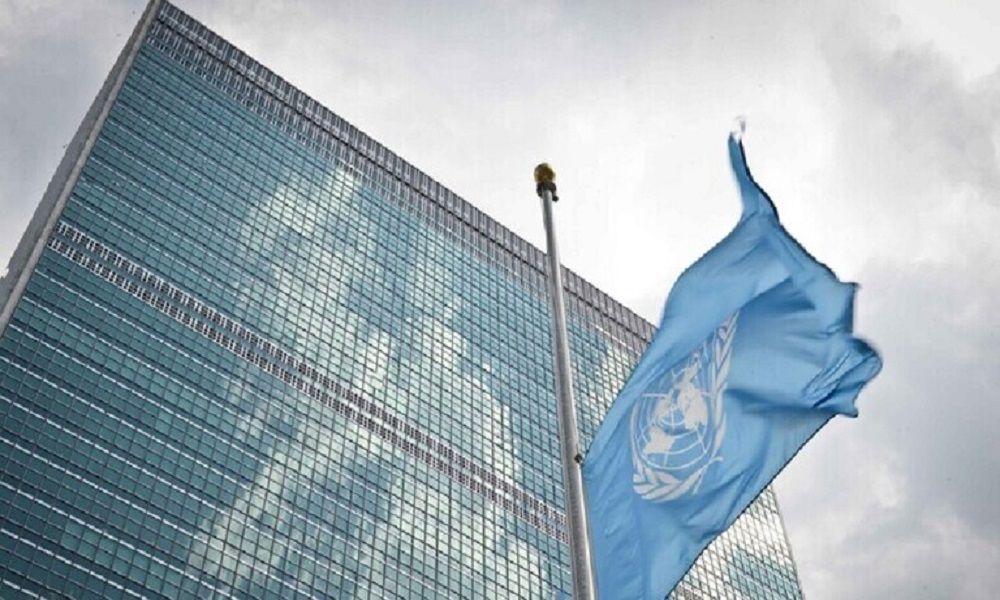- Home
- Middle East
- UN probe Finds New Russian Crimes Against Humanity in Ukraine

A new UN report accuses Russia of committing another “crime against humanity” by launching drone attacks on civilians in Ukraine and forcing people to flee. ©Al Markazia
Russia has committed a crime against humanity in forcing people to flee Ukrainian-held territory through continual drone attacks targeting civilians, a United Nations-backed investigation said Monday.
The UN's Independent International Commission of Inquiry on Ukraine also determined that Russia had committed war crimes in deporting and transferring civilians from occupied areas of Ukraine's Zaporizhzhia region.
"Russian authorities have systematically coordinated actions to drive out Ukrainian civilians from their place of residence by drone attacks, as well as deportations and transfers," the probe said.
The commission, established by the UN Human Rights Council shortly after Moscow launched its full-scale invasion of Ukraine in February 2022, found that Russia had "committed the crime against humanity of murder" across much larger swathes of territory than previously established.
It has also committed "the war crimes of intentionally directing attacks against civilians and civilian objects, and of inflicting inhuman treatment, as well as corresponding human rights violations", it said.
Drone attacks
In May, the commission determined that Russia's months-long, short-range drone attacks targeting civilians along a 100-kilometer stretch on the right bank of the Dnipro River in the Kherson region constituted murder as a crime against humanity.
Five months on, it has extended the scope of those conclusions to a 300-km stretch of Ukrainian-held territory across the Kherson, Dnipropetrovsk and Mykolaiv regions.
It has now also concluded that the attacks were "part of a coordinated policy to drive out civilians from those territories, and amount to the crime against humanity of forcible transfer of population."
"For over one year, Russian armed forces have been directing drone attacks against an extensive range of civilian targets," the report said, including people, houses or buildings, humanitarian distribution points, and critical energy infrastructure," the new report said.
The commission highlighted that the attacks had "compelled thousands to flee."
Operating under a centralized command, Russian troops "intentionally target civilians and civilian objects and cause harm and destruction," it said.
"They even hit first responders," the commission said, including ambulance crews and firefighters, sometimes repeatedly, despite clear markings on vehicles.
Deportations and transfers
The report, which the commission was to present at the UN in New York on Monday, also determined that Russia's move to drive civilians out of areas it occupies in the Zaporizhzhia region "amount to the war crimes of deportations and transfers".
"Arrests, detentions, various forms of violence -- sometimes including torture -- searches, confiscations of documents and property, preceded the transfers or deportations," it said.
The report looked at the Russian authorities' transfer in 2022 and 2023 of civilian adults into Ukrainian-controlled territory, "as a punitive measure for alleged activities against the Russian Federation".
They were forced to walk 10-15 kilometers through a "highly dangerous operational area" to reach the Ukrainian lines, it said.
Since 2024, civilian adults have also been deported to Georgia, via Russia, and given "deportation orders" barring them from entry into Russia for typically 20 to 40 years, it said.
For the report, the independent commission said it had interviewed 226 victims, witnesses and others, examined more than 500 publicly available videos of the crimes documented in the report, geolocating nearly half of them.
The commission has previously said Russia's forced transfer and deportation of Ukrainian children to areas under its control amounted to war crimes and possible crimes against humanity.
Moscow does not recognize the commission and does not answer its requests for access, information, and meetings.
With AFP
Read more



Comments